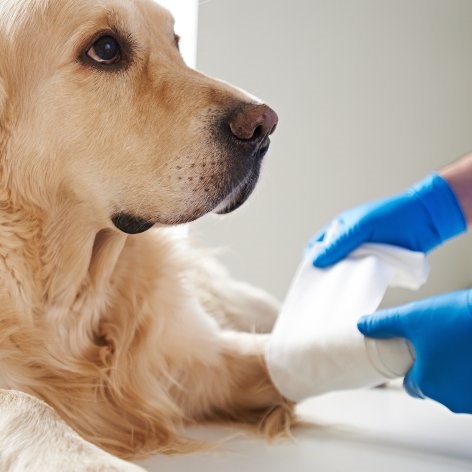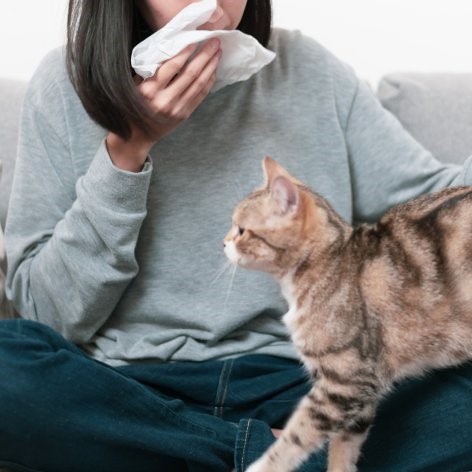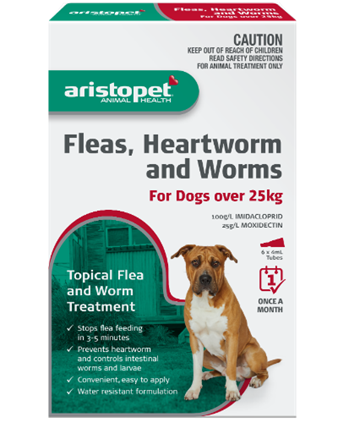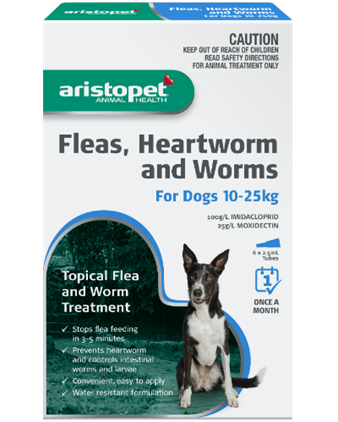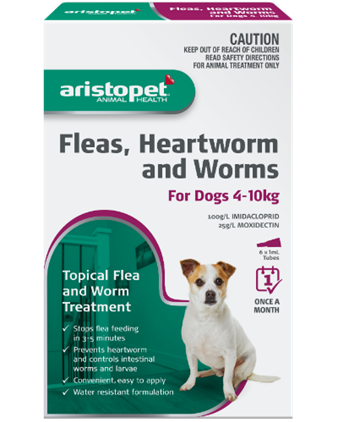Fleas, worms and ticks can cause diseases in your pets, and they can take a long time to get under control.
Prevention is always better than cure, so if you're not sure then ask your vet for advice on how to control these unpleasant parasites.
Fleas
It’s often thought that fleas jump from one animal to another, but this is actually a misconception. In fact, cats and dogs pick up fleas from their environments, such as the local park or a friend’s house, where there has been another animal with those parasites. These infested animals drop flea eggs, which hatch and jump aboard our pet once they sense the warmth and vibration of a potential host! A female flea can lay up to 50 eggs a day on your pooch.
These eggs drop off onto carpets, couches and bedding, where they remain until they sense the presence of an animal, at which time they hatch into fleas, jump aboard the new host, and the cycle begins again.
When there is a flea infestation, only 5% of the entire flea population will be found on the pet, with the other 95% being found in the environment.
Flea eggs can also attach to clothing and shoes easily. This explains why indoor only pets can also get fleas.
This cycle can take up to 3 months to get under control, which is why cat flea treatments should be administered regularly, all year round, regardless of the season. You may need to treat your home by vacuuming carpets more regularly and washing your pet’s bedding at a high temperature.
Spot on treatments are the most popular choice, tackling fleas and worms in an easy monthly treatment. Oral versions can be handy for those who swim a lot, or in households with young children. Not all animals will happily swallow a pill, so topical flea treatments remain a popular choice, especially for cats. Kitten flea treatments are also available for your new furry friends.
Setup a Free SMS Treatment Reminder
Worms
Puppies and kittens should be wormed more frequently than adults. Frequency is also dependent on the specific product used and the age of your pet, as puppy worming treatments are required every month until they are six months old. Cat worming treatments and dog worming treatments are usually instantly effective, but if you’re concerned, your vet can perform a faecal test to assess the frequency and efficacy of your worming regime.
While worming is effective in killing worms that are present in the intestine at the time of treatment, it is not a vaccine against future attacks. This is why regular treatment is essential to your pet’s health.
Dogs and cats can be re-infected from other pets and from their environments - this is why it is essential to treat all animals in your household at the same time
It's also important to keep this in mind if your cat is a great roamer, or your dog is the most social pooch at the park!
The most common types are roundworms, hookworms, whipworms and tapeworms, and symptoms of worm infestation can include diarrhoea, poor stamina and weight loss.
Most of the common worms found on pets are zoonotic parasites, which means they can also be passed from animals to humans. This makes worming your pet regularly even more important, especially if you have children in the family.
Ticks
In Australia, the biggest danger with ticks is tick paralysis. It is a syndrome caused by the Australian paralysis tick (Ixodes holocyclus). They are found along the east coast of Australia, from north Queensland to eastern Victoria. The toxins in their saliva can cause paralysis and death in cats and dogs. They are difficult to be tell apart from the other types of ticks so make sure to contact your vet if you found a tick on your pet. It is very important to be vigilant in areas where paralysis tick occurs and use appropriate products to prevent infestation.


